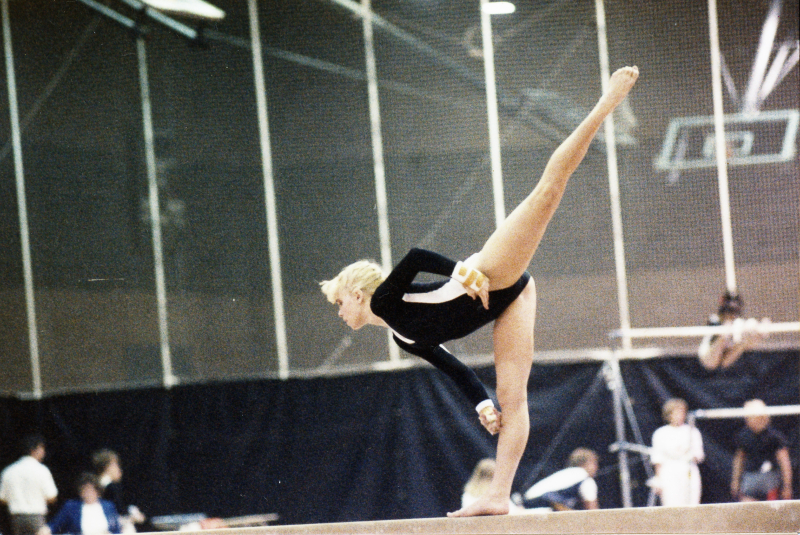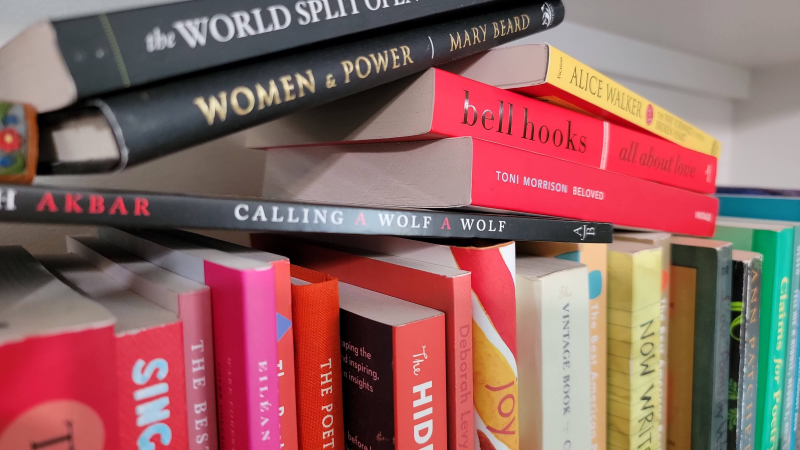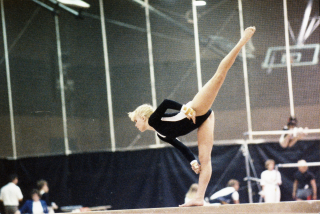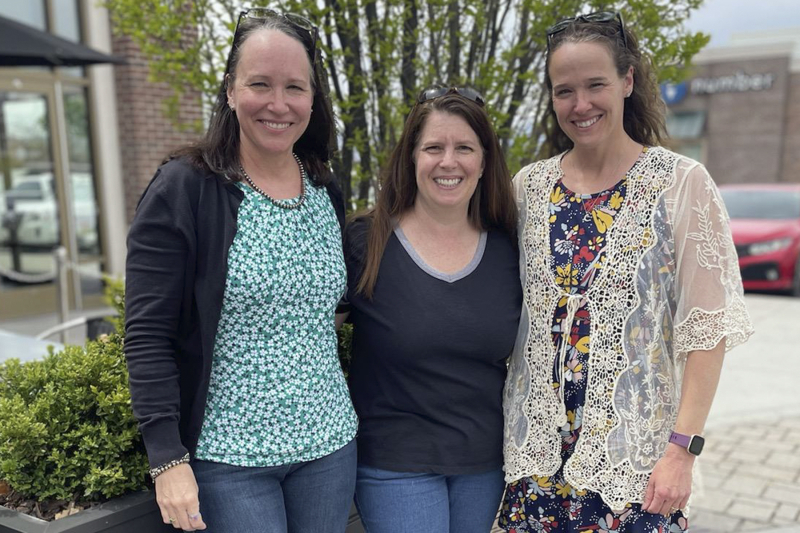Victoria's Secret
Sunday, July 31, 2022
Last week this video popped up over and over in my social media feeds:
It’s a recording of a flash mob outside of a Victoria’s Secret, and the singer/songwriter Jax is performing her song “Victoria’s Secret,” which is about how our perceptions of what women’s bodies are supposed to look like are manipulated by marketing. I think it’s a fantastic performance and has a great message.
I noticed, though, as I read the comments of strangers on my friends’ feeds, an overwhelming similarity: so many of the comments went along the lines of “I hope I can teach this to my daughter.” And while I am 110% behind young girls learning body positivity, and I hope I taught it to my daughter better than my mom taught me, I started to feel like maybe there’s something wrong with me? Have all the other 50-year-olds gotten over their body negativity?
One of my very strongest memories from childhood might be the last time I loved my body unequivocally. I was sitting on the lounge chair on the patio in our backyard, reading a book. It was a summer afternoon and that morning I had done my three-hour gymnastics workout. Lying there in the shade with my book, I pointed my toes, lifted my straight leg in the air, flexed my biceps, all because I had finally mastered something at the gym (I don’t remember now what skill it was). I felt strong and skilled and, most importantly, light. So small and compact the summer wind could lift me. I thought this is exactly how a body should feel.
I was ten or eleven.
After that summer afternoon, I wanted to keep the feeling of being both strong and small, so I worked harder at the gym. I don’t think I really matched up what I ate with how small I might be, but I never stopped yearning for that feeling. And for whatever reason, I never felt it again.
I mean, this girl could do fifty pull ups and then fifty dips and then one hundred sit ups in a row; she could do flips on a 4” wide balance beam and swing around the bars.
But she hated her body. Her boobs were too small and her butt was too flat and her thighs were too big.
In my 20s I had three magnificent pregnancies with no complications and perfectly healthy babies who I nursed without issues. But I hated my body. I wanted slimmer hips and a flatter belly and bigger boobs and smaller thighs.
In my 30s I was a strong runner with no injuries. I was busy with three, then four kids who I had plenty of energy for. But I hated my body; my belly was even bigger, my boobs saggier, my hips wider. I started to struggle with weight gain. My thighs were still too big and my running pace was too slow.
In my 40s I fought through several injuries and kept running. I began hiking on a regular basis and discovered I’m a pretty fast uphill hiker. I trained for and ran a marathon while recuperating from pertussis. But I hated my body, because losing weight became impossible and I got a good growth of back- and side-boobs and my skin began to sag and wrinkle.
And here I am, 50 years old. Still hating my body. Don’t get me wrong: I have gotten better. A huge part of me accepting my body was finding running clothes I love (which might sound like a marketing gimmick but for me it was an answer. Girls without thigh gaps are never going to be comfortable in tiny running shorts). Now if you gave me three magic wishes to use on my body, I’d wish for healthy knees, painless feet, and a better memory rather than slim thighs, big boobs, and a flat belly. I know it’s imperfect, especially by society’s standards, but my body is the only thing I have to experience this world with, so I try to cut out the negative self-talk and accept it for what it is.
But I’m not sure I will ever not have this deep-down body shame.
I don’t think my mom ever got over it. During her last illness, she told me once that she hoped, once she got better, she could keep off the weight she’d lost. The weight she’d lost suffering with intense abdominal pain, several surgeries, and a limited diet: that lost weight was her silver lining. And I don’t write that with judgement but with sadness. I’m not sure she ever thought her body was good enough.
A friend once told me that she was surprised to read (in a blog post) that I struggled with my body image. “But you run all the time! You’re strong and you’re not overweight like me.” I don’t know—do I carry around this shame out of conceit? Is there a body weight that’s too small to express your embarrassment over, like cultural appropriation except with body issues? I don’t think so. I know plenty of runners who are faster than me, who have that stereotypical “runner’s body,” chiseled muscles and a flat belly and a thigh gap, who also carry around the same shame. (And, in some ways, running makes it…not exactly worse, but adds another level. How silly of me to call my soft, slow body a runner’s body! Is a 10=minute-mile even running or is that just jogging? If I were more dedicated, I’d be faster, thinner, stronger. Can’t have carbs and a fast-run summer!)
So yes: I am here for songs and social movements that celebrate real bodies. The shapes of all the bodies. More, the concept that who we are should be determined by…who we are, how we chose to live our lives, the way we love our people and try to take care of the world, rather than what size our clothes our, how flat our bellies, how gapped our thighs. I am so much here for teaching this to our daughters and granddaughters. I long for the existence of a generation of women valued for what they contribute to the world, not for their level of sexiness.
Oh how I want that for younger generations.
But I grew up in an era where these ideas didn’t even exist, raised by a mother from a generation that was very much about how you look. (I will never not hear her saying “Amy sure is looking heavy” when I look in the mirror at my body.) For myself, all I can do is continue to fight it. To acknowledge the thoughts are there and then to take my sub-par but alive body out into the world, dressed in a skirt that might be too short for my Mary-Lou thighs and a tank-top that might show way more side-boob than is visually comfortable, and do things. Run, hike, walk. Fumble at climbing, swim poorly. Hold my husband’s hand, hug my children. It’ll never be perfect, this body. Just like I might never rid myself of the shame in order to love it completely.
But I’ll keep trying.



